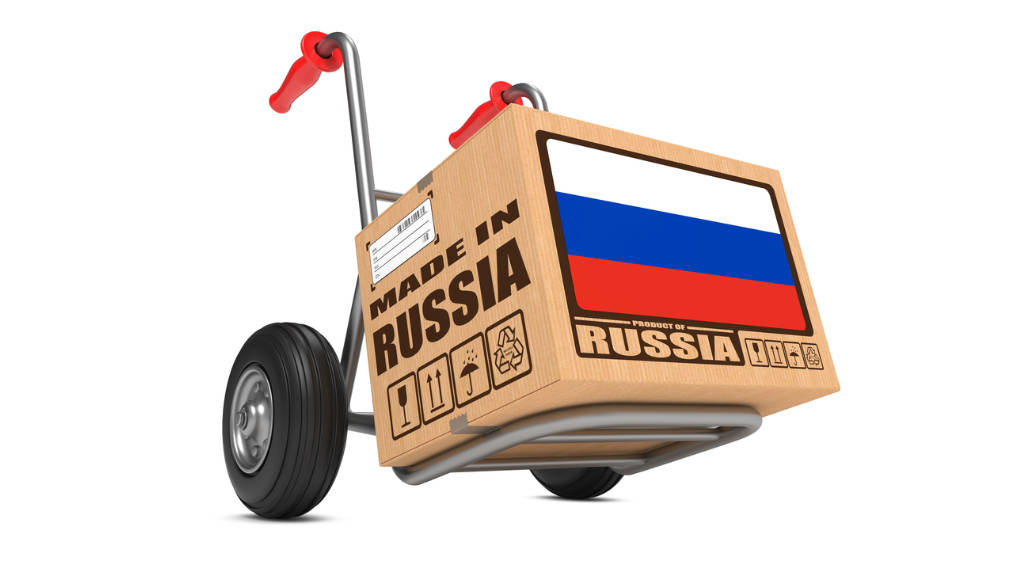The support measures provided for by the Russian Export Centre (REC) to encourage Russian businesses to look at new markets in ‘friendly’ countries has significantly increased the number of non-resource exporting companies. Among the most promising areas according to the REC are agricultural sector, IT and telecommunications, and logistics.
According to the Russian Ministry of Industry and Trade, during 2023, the volume of non-oil, non-energy exports amounted to US$146.3 billion, while the volume of Russian export supply and support businesses increased to about 16,200 companies. In particular, the number of exporters among the SME sector has grown by 60% — by 83,000 new businesses since 2020. REC Managing Director Veronika Nikishina says that almost any Russian entrepreneur who is able to produce competitive products and who has the desire can become an exporter.
New Russian Non-Energy Export Sectors
The REC allocates three sectors with the greatest export potential: agriculture, IT and telecommunications, and logistics. According to the Russian Ministry of Agriculture, the sales from the export of agricultural products in 2023 exceeded US$45 billion for the first time.
In IT, the Russian export market has focused primarily on ‘friendly’ markets, mainly in providing solutions for information security and technological independence. In order to produce something highly specialized (for example, low power electric motors) at competitive prices, a large market is needed, otherwise the volumes will not reduce the cost to an acceptable level.
Logistics is the largest segment in the overall export of services in Russia, accounting for more than 25% of all services. The departure of new global sea lines from the Russian market, as well as the development of transport corridors such as the INSTC and the Far Eastern routes is also leading to the development of Russian transport and logistics services.
The REC provides support measures for Russian companies entering foreign markets. In particular, manufacturers and suppliers can contact their REC regional centers for export support and trade of Russia abroad to search for foreign customers and analyze these markets. There are also financing mechanisms for exporters to participate in international exhibitions and business missions to search for new sales markets and foreign partners, and logistics support. In addition, companies can obtain assistance in certifying and licensing their products.
To facilitate exports, the REC Digital Platform “My Export” was launched in 2020. It provides access to state and other services necessary for companies to enter the international market. Over three years, the number of platform users has already increased from 2,500 in 2020 to more than 29,000 in 2024. The number of online available services has also increased — from 14 to 125.
The development of the REC online export payment service will continue to be prioritized, while available digital financial products from the REC Group will include insurance and credit and guarantee support services.
The new wave of Russian exporters have now largely abandoned Western markets and are concentrating on Asia. Examples include Russia’s Niva and Mirel, both in the snacks market, who have entered into significant export contracts for delivery to Egypt, the UAE, Vietnam and China, while the Volgograd-based Zhasko company has recently entered new markets of Uzbekistan, Belarus, Kazakhstan, Kyrgyzstan, Tajikistan and Turkiye.
High-Tech Exports
Russian government support measures have also been calculated for the development of high-tech products with high export potential, such as drones, agricultural stratification and electric and hydrogen vehicles. Among these are examples such as Aeromax, who are developing a new model of unmanned civilian aircraft with an take-off mass of 3,000 kg. The development allows the use of unmanned goods in almost all climatic and geographical conditions and to increase unmanned cargo transportation, including when delivering heavy and overall cargo to hard-to-reach territories.
Russian companies are also creating their own innovations for the development of electric transport. This includes advanced energy platforms such as charging stations for electric vehicles based on a hybrid gas piston unit capable of generating electricity with almost zero environmental impact and suitable for use in Russia’s winter months (cold weather depletes pure EV stations very quickly).
The station has already been shown at exhibitions in the UAE and Kazakhstan. Russia’s Tigarbo Eco has developed 15 models of various ev passenger and freight models, ranging from a small double tricycle to an 18-seater electric bus and electric truck with a carrying capacity of up to two tons. The localization of production is already at 70%, with the company now exporting electric cars to Armenia, Belarus, Kazakhstan and Tajikistan.

 Русский
Русский













